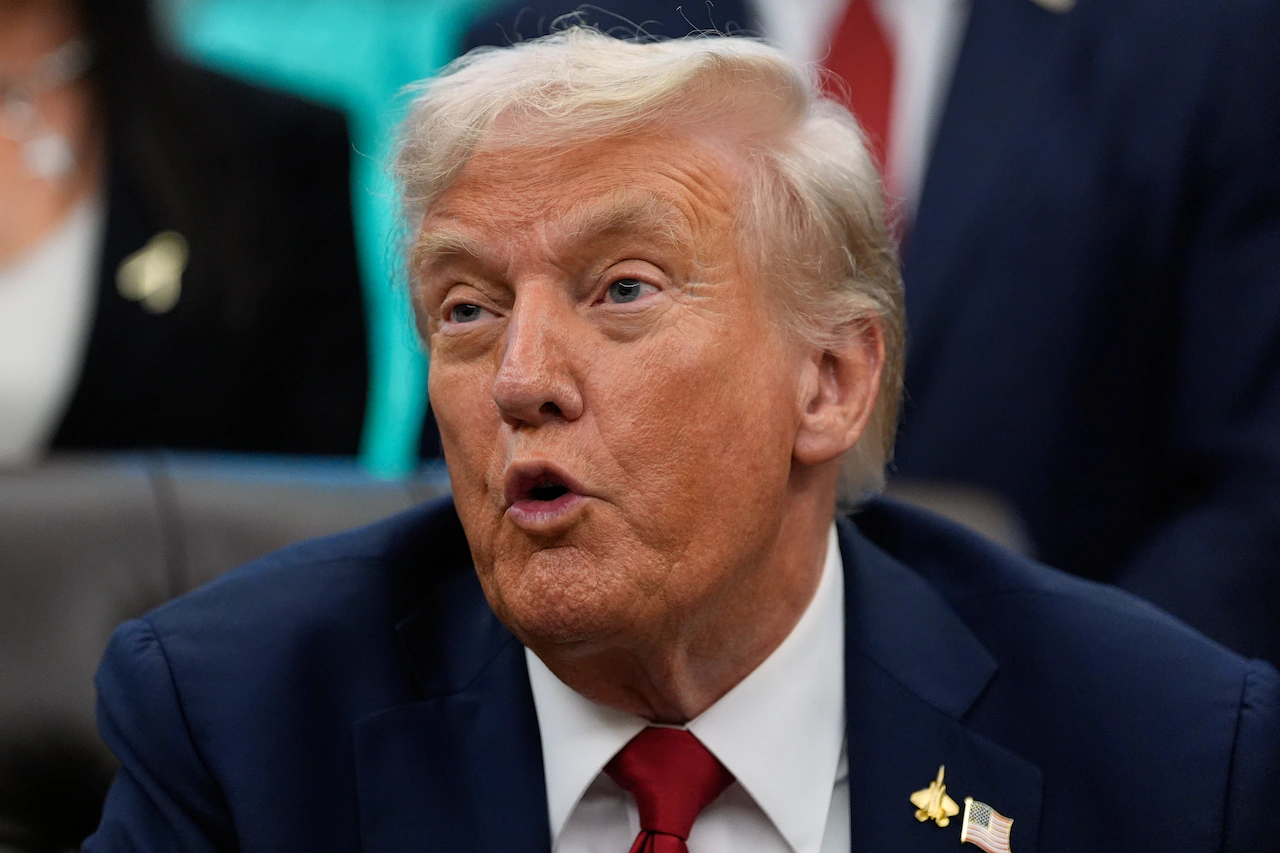
President Donald Trump wants colleges to agree to a set of operating principles in line with his political agenda in exchange for preferential access to federal funds.
Trump’s administration produced a 10-point memo titled “Compact for Academic Excellence in Higher Education” that outlines the terms, according to The Wall Street Journal. The administration said the compact is meant to raise university standards and performance.
Colleges that sign the document will get multiple benefits, including “substantial and meaningful federal grants,” according to the Journal, which cited a letter sent to college leaders.
The memo demands that schools ban the use of race or sex in hiring and admissions; freeze tuition for five years; cap international undergrad enrollment at 15%; require that applicants take the SAT or a similar test; and quell grade inflation, according to the Journal.
The memo also focuses on the campus political climate.
It asks colleges to ensure a “vibrant marketplace of ideas” and bars employees from expressing political views on behalf of their employer, according to the Journal. It also aims to encourage a more welcoming environment for conservatives and asks colleges to abolish departments that “purposefully punish, belittle, and even spark violence against conservative ideas.”
The memo states that colleges can develop other models if they choose to give up federal benefits, according to the Journal.
In addition to access to federal funds, colleges that sign on would get looser restraints on overhead costs, according to The New York Times.
“We hope all universities ultimately are able to have a conversation with us,” said May Mailman, the White House’s senior adviser for special projects, according to the Times.
The administration has been taking aim at U.S. colleges and universities since Trump returned to office in January. Trump has been pressuring schools to follow his preferences through a combination of threats, investigations and suspensions of funding.
He has been particularly focused on diversity, equity and inclusion efforts.
Bloomberg noted that the new compact could run counter to constitutional free speech protections. Colleges put at a disadvantage with the federal government are likely to mount legal challenges.
Critics found the idea of a compact troubling, especially its points on political expression and views, according to the Journal.
“Who decides if the intellectual environment is vigorous and open-ended? This is not something the federal government should be involved in and adjudicating,” said Ted Mitchell, president of the American Council on Education, according to the Journal. “The implications for free speech are horrifying.”



